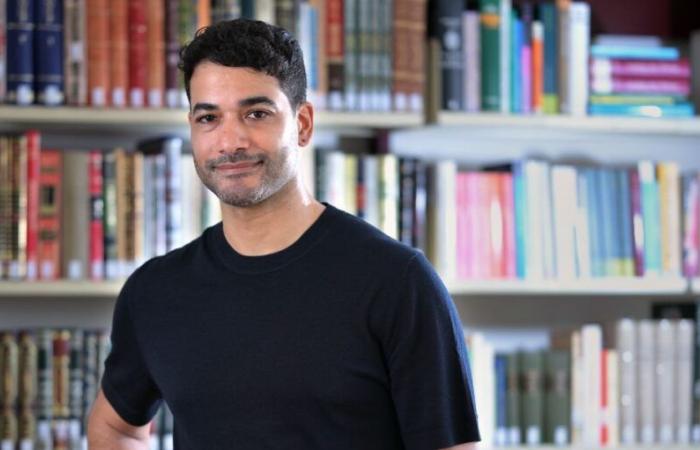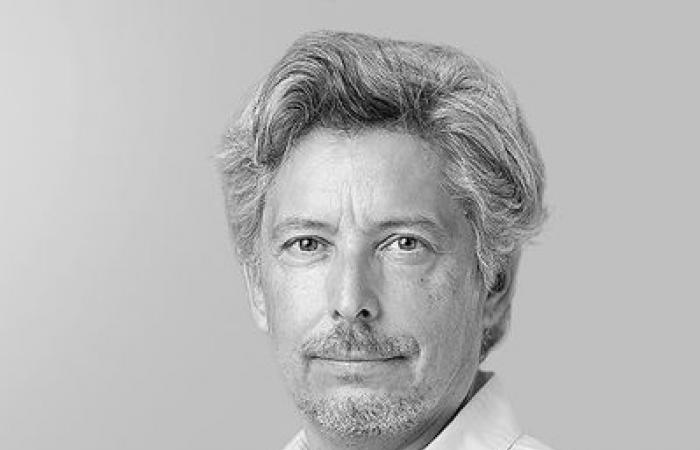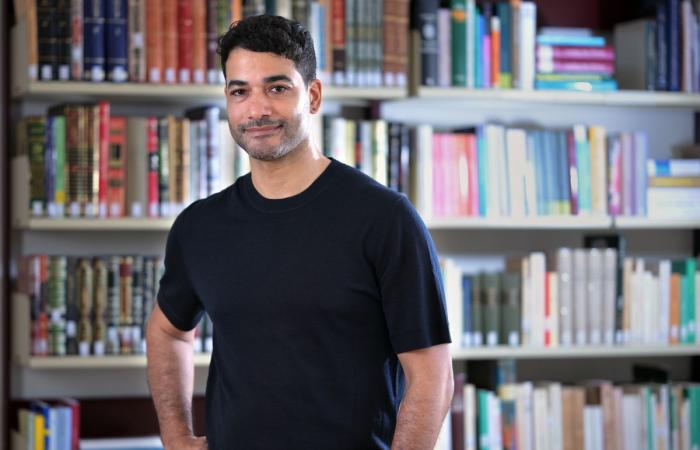Universities –“10 years ago, there was almost nothing of Islam in Switzerland”
At the University of Friborg, the Swiss Center Islam and Society (CSIS) celebrates its tenth anniversary. A unique institution in Switzerland, which has registered the Muslim community in the field of scientific studies. Interview with Amir Dziri, his co -director.
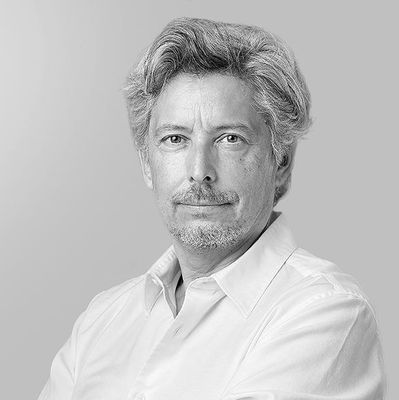
Posted today at 12:00 p.m.
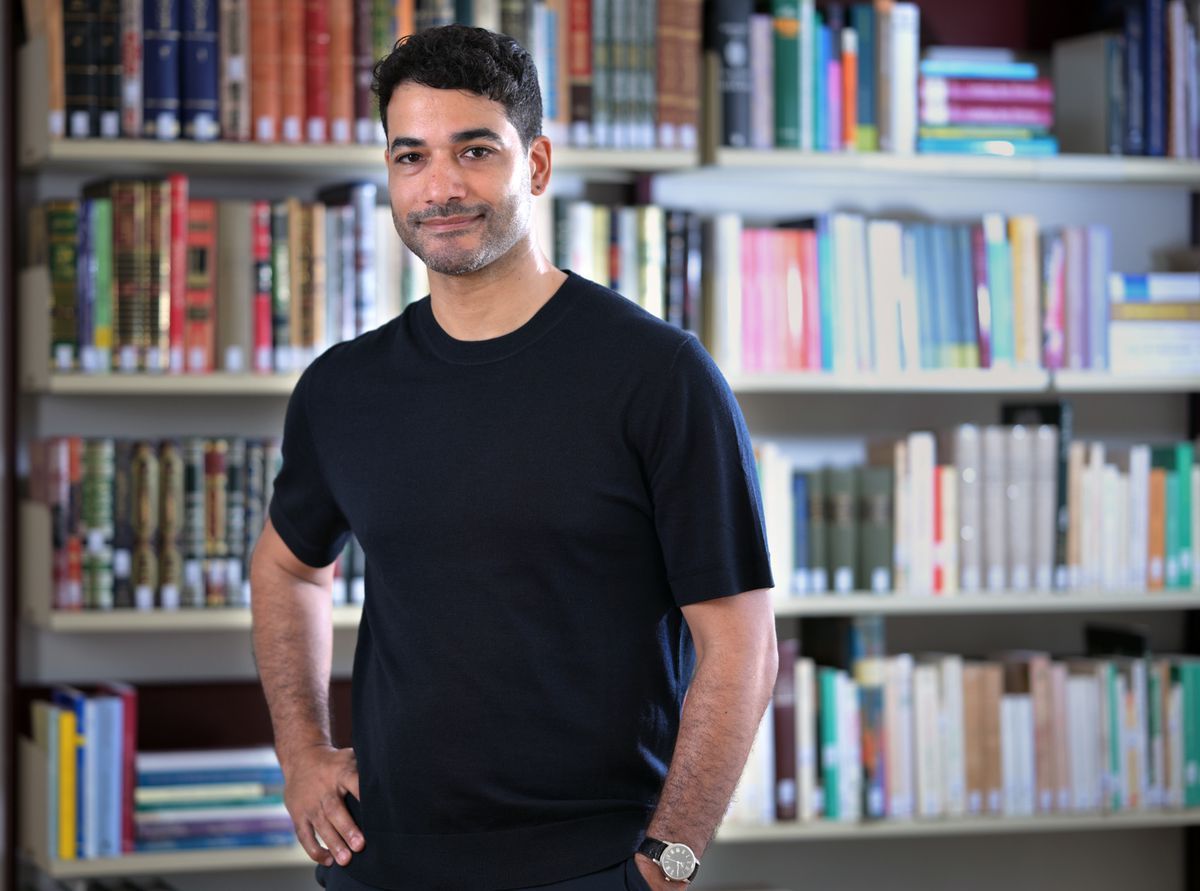
Amir Dziri is the codirector of the Islam center and Société de Friborg. Photo: Chantal Dervey/Tamedia
CHANTAL DERVEY
Subscribe now and take advantage of the audio reading function.
- The Islam and Society center of Friborg celebrates its ten years of academic existence.
- The institution promotes the integration of imams in the current Swiss cultural context.
- The CSIS helps to dispel prejudices between communities.
On Tuesday, May 6, at the University of Friborg, the CSIS is organizing a celebration open to the public for its ten years of existence. Symposium, workshops, aperitif (registration and link to the program below) will allow us to return to this unique academic adventure in Switzerland. The CSIS was looked at with circumspection during its launch, in 2015, under the aegis of the three faculties of theology, law and letters. But these under -tension beginnings were also trainers, as his director, Amir Dziri, Tunisian trained in Germany explains and arrived in Friborg in 2017.
How was CSIS born? We sometimes described, at the beginning, your activities like those of a religious school.
Yes, we suspected the CSIS of wanting to establish a confessional training at the university, briefly said to “train imams”, while our studies lead on the contrary to integrate them better, to make those who frequent the CSIS the reality of here. In Switzerland, the center was founded a few years after the voting on the minarets. It marked: a lot of criticism, but it was necessary to really respond to these criticisms.
The CSIS started in 2015, you arrive in 2017: the climate was more peaceful?
We were in the midst of press drawings. And the Cantonal Initiative of the Friborg UDC aimed at prohibiting the CSIS had just been invalidated by the Federal Court. It was therefore not easy. We then had a lot of exchanges with politicians, journalists, academicians, etc. We were able to quickly create a lot of links.
Have these controversies been useful to you?
We had to be clear, transparent with our visions, explain what we wanted to do. So yes: this tension could be constructive. Today, there is no longer this “essential”, existential dispute. It has become a dialogue. Most people are happy that this center exists because it can feed a scientific debate and give expertise that did not exist. In 2015, Islam in Switzerland was a black boxa black box. We didn’t know anything about it, or not much. Now, there is a lot of information on actresses and actors, on associations, communities, on themes. It is a favorable result for the whole society.
How is it going concretely?
It is a question of inserting Islam in a field of academic and scientific studies. This can help imams that are already in Switzerland, or come to Switzerland. But it obviously does not only concern them. Our students come from many horizons, are sometimes engaged in Muslim communities and associations. There is a mixture with students who are not Muslims. I imagine half of them, because they are not asked for their religion – it is prohibited – when they register. And finally, those who come from other programs, who take courses in religion, social or economic sciences, philosophy, law, etc., and wish to do a job concerning Islam. These exchanges are fundamental in our way of participating in academic life.
What has changed in ten years?
The debate was more polarized. There were the bad Muslims, and the good Muslims. We were content with categories, progressives and conservatives. We have managed to reduce this perception, demonstrating that there are a lot of position nuances. We were able to conduct this differentiated discourse, which can also criticize as to enhance certain activities of Muslim communities, or associations. It is asked today to be an ambassador outside his community. You have to communicate, create links, engage in dialogue. We can no longer focus only on the religious. The imams were content with prayer, it was their job. Now they are engaged in interreligious dialogue, requested by the media. They wonder what are the needs of young Muslims here in Switzerland. Their role has evolved enormously.
The massacre of October 7, the war between Israel and Hamas, the tens of thousands of deaths in Gaza: does that affect the CSIS?
It is an important and complex question. I have been working on Judeo-Muslim dialogue since well before October 2023. We also did research on the anti-Semitism of part of the Muslim communities, on relations between Muslim and Jewish communities. The speech is there still often caricatural. The Jews, without any nuance, are mechanically associated with Israel, and Muslims with Palestine. However, it is a political conflict and it is not the same to be Jewish or Israeli, to be a Muslim or Palestinian. This confusion, as imposed from the outside, creates a lot of difficulties and takes some time to be understood.
To the point of being an issue?
There is something exacerbated also by the situation in the United States that we feel: universities, especially the human sciences, or theology, are now considered as a battlefield of cultural war. They are supposed to be partisans of this, this, or wokism, an ideology, the air of the times. There is therefore a tendency to want to reduce their role. However, I am firmly convinced of the advantages and the important contribution of the humanities to society. We also need to nourish thought: it is as “useful” as physics or biology.
“Latest news”Do you want to stay at the top of the info? “24 Hours” offers you two meetings per day, directly in your email box. To not miss anything of what is happening in your canton, Switzerland or in the world.
Other newslettersConnect
Christophe passborn in Friborg, has been working in the morning on Sunday since 2014, after having passed in particular by the new daily and the illustrated. More info
Did you find an error? Please report it to us.
0 comments

